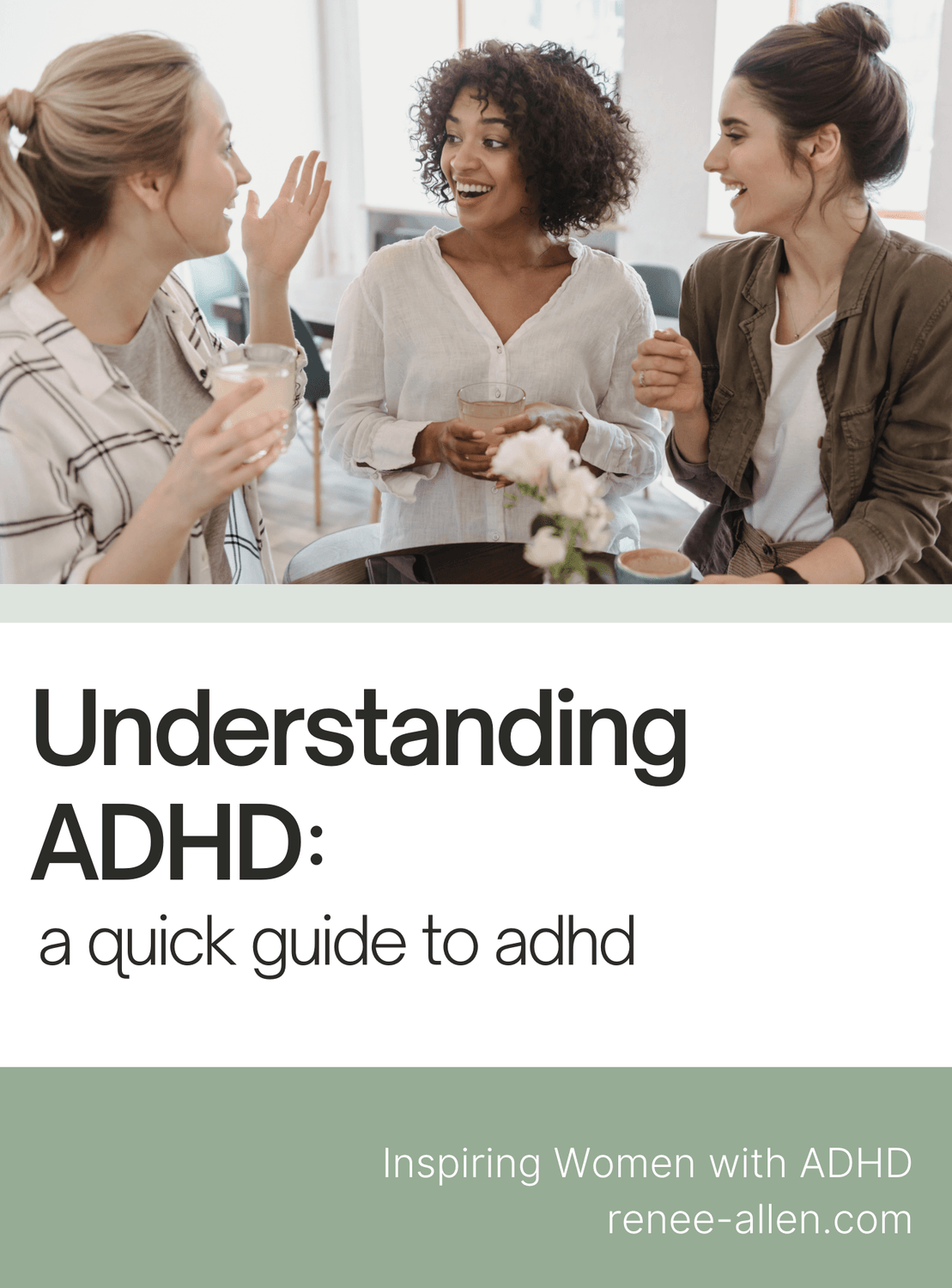How ADHD Medication Can Make a Difference
How ADHD Medication Can Make a Difference
ADHD medication can make all the difference in the world for women trying to manage life with ADHD.
Whether you’ve been recently diagnosed or have known you have ADHD for years, understanding your options for ADHD medication can be helpful as you figure out what's best for you.
Keep in mind that everyone's experience is different. You may have friends or even family members that take medication (or even supplements) for ADHD. What works wonders for one may not be great for you.
Some may skate by without any side effects while others experience side effects that are disruptive to their lives or are even problematic.
Do you even need an ADHD Diagnosis?
If you suspect you may have ADHD — or know that you do, but haven't sought a diagnosis — you might wonder if an ADHD diagnosis is even necessary.
If you're hesitant to try ADHD medication or don't feel the need to have the validation of a medical diagnosis, you can certainly go through life without getting diagnosed.
But if you want to try prescription medication for ADHD, you would need an ADHD diagnosis.

Who can Diagnose ADHD?
Some qualified professionals who may be qualified to diagnose ADHD:
Primary Care Doctor
Psychiatrist
Pediatrician
Neurologists
Psychologists
Social Worker
Nurse Practitioner
Licensed Therapist
Licensed Counselor
Who can prescribe ADHD medication?
Primary Care Doctor (M.D. or D.O.)
Pediatrician
Psychiatrist
Psychiatry Resident Doctor
Nurse Practitioner
Physician's Assistant (PA)
My son was able to get his ADHD medication from his pediatrician, but my doctor referred me to a specialist in Psychiatry for my diagnosis.
When I later asked my primary care doctor if I could see her for my prescriptions, she was able to issue refills, but said I'd need to see the psychiatrist for any changes in medication. It may be different for you according to where you live and the practices of the medical group.
How Helpful is Medication for ADHD?
ADHD medication isn’t cure; but it can improve your ability to function with ADHD. Medication can increase your otherwise low levels of dopamine and norepinephrine. It can help you manage challenging symptoms (like inattention, hyperactivity and impulsivity), which can make it much easier for you to complete daily tasks. Medication can also help quiet your mind a bit do you're not so bombarded by your own thoughts.
Many women feel so much more in control with ADHD medication.
The big BUT is that finding the right medication isn't always easy. It may take some trial and error.
Stay in touch with your doctor during the process of trying medication.
Watch for any improvements and watch for symptoms that may not be so great.
Let your doctor know what is working and what's not to find the right medication for you.
Types of ADHD Medication
There are two categories of ADHD medication: stimulants and non-stimulants. Stimulants are often recommended first because they tend to be helpful and effective. Some women have a hard time tolerating stimulants or don't see improvements. Non-stimulants can be beneficial in addition to a stimulant or on its own.
Stimulants:
increase dopamine and norepinephrine levels in the brain
Stimulants can be taken once a day or as directed more than once a day
Short Acting Stimulants:
(3-6 hours) Adderall, Ritalin, Focalin.
Long acting stimulants can last up to 12 hours, depending on the medication
Extended Release Stimulants:
(6-12 hours) - Concerta, Vyvanse, Adderall XR, Focalin XR
Non-Stimulants:
You may not feel the full effects or benefits of non-stimulants until you've taken them for a few weeks or even months. Non-stimulants may be worth exploring if stimulants aren't helpful.
Finding the Right Fit
Finding medication that works for you can take time and some patience. Be sure to stay in touch with your healthcare provider about your experience and any side effects you have.
Write a message on your doctor's healthcare portal or call the doctor's office & leave a message for your doctor to call back. You are your #1 advocate and your doctor won't know how your prescription is working (or if it need tweaking) unless you take the time to share how it's going.
If your ADHD medication isn’t working for you, do some research, and ask about alternatives, whether it's a change in timing, dosage, or trying something different.
Do your best not to get discouraged - like so many other women with ADHD, you may need to try different options until you find the right fit.
Supplements
You may decide to try supplements instead of along with medication. Not every supplement recommended will work for you, but one could be the answer.
You may go down the rabbit hole read reviews about how supplements like Lion's Mane, L-Theonine or L-Tyrosine help other women with their ADHD and then it does nothing for you. OR you could be joining the choir of those who sing its praises!
Before you take a supplement, be sure to learn about possible side effects of supplements to watch for and consult with your doctor to see if they have any concerns.
It's Up to You
Whether or not to use ADHD medication is a personal decision. It's something that you get to figure out -- yes, with the help of your doctor, but you feel what it's like to be in your body and your brain. You will be able to tell what's helping or what isn't.
As you weigh the benefits with how your medication or supplements make you feel, do what helps you feel the most whole and what helps you feel good each day.
Remember that so many women are sharing this journey with you, navigating a similiar path. Thankfully we live in a time with information at our fingertips. Google around a bit or listen to podcasts like mine for ideas or support.
Once you find what works best for you, enjoy any new strides you have. I find that some days are smooth and on others, I wonder how I ended up back on square one. Not every day will be perfect, but as long as you're doing better overall, you have have found a good fit for your medication. If you ever feel like it's not having the same effect, talk to your doctor about other options.
Thankfully, I haven't experienced a decrease in benefits from my medication over time, but I know that this happens for some women and am prepared for the idea that I may need to shift gears someday, too.
I wish you the best on your journey with ADHD. Take care!
— Renee
Get your free ADHD Guide


Download your Free ADHD Guide
Get your free guide
find me @inspiringwomenwithadhd










